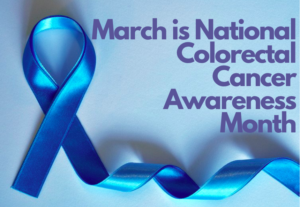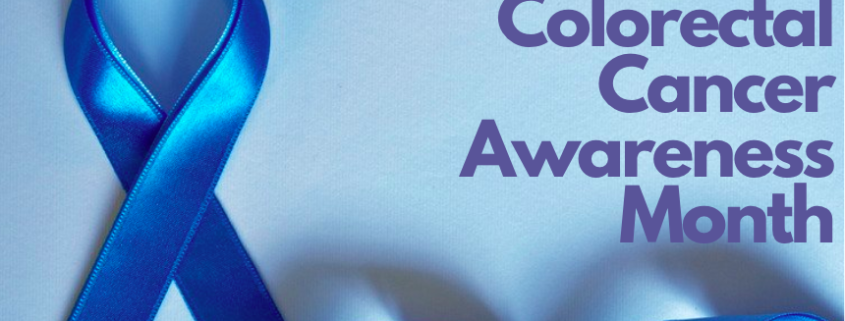What You Need to Know About Colorectal Cancer
 Did you know that colorectal cancer is the second leading cause of cancer-related death for both men and women? Prevent Cancer Foundation has sponsored National Colorectal Cancer Awareness Month since 1999 to encourage colorectal cancer screening. Evidence suggests that screening at 45 years of age and older can save lives.
Did you know that colorectal cancer is the second leading cause of cancer-related death for both men and women? Prevent Cancer Foundation has sponsored National Colorectal Cancer Awareness Month since 1999 to encourage colorectal cancer screening. Evidence suggests that screening at 45 years of age and older can save lives.
You may even choose to begin the screening process before you turn 45 years old if you are at a higher risk for colorectal cancer. That’s why it’s important to know the risk factors that might make you suspectable to it.
Being aware of the symptoms of colorectal cancer can also save your life. If you have some of the identified symptoms below, speak with your doctor to get screened.
Learn Your Risk
Colorectal cancer has a connection with aging. There are other risk factors you should be aware of including:
- Having inflammatory bowel disease, i.e. Crohn’s disease or ulcerative colitis.
- A personal or family history of colorectal cancer or colorectal polyps.
- A genetic syndrome such as familial adenomatous polyposis.
- Inactivity.
- A diet lacking fruit, vegetables, and whole grains.
- A diet high in processed meat and red meat.
- Smoking and excessive alcohol consumption.
What are the Symptoms?
Symptoms for colorectal cancer and polyps often do not come up at first, which is why it is imperative to get screened regularly. Symptoms that you may have are:
- Blood in your stool.
- Changes in your bowel movement regularity.
- Stomach pain, aches, bloating or cramps that don’t go away.
- Constant lack of energy.
- Unexplained weight loss.
- Vomiting.
Prevention is Key!
The most important thing to keep in mind with prevention is getting screened regularly. Colorectal cancer usually begins with precancerous polyps in the colon or rectum that can be present for years with no symptoms. If you are screened and polyps are found, they can be removed, and cancer can be prevented. The earlier colorectal cancer is caught, the more effective treatment can be. Start screening at 45 if you’re not at an elevated risk, but if you have a higher risk, start getting screened sooner and more often.
Now that you know your risk factors, symptoms and prevention, get screened and encourage loved ones who may be at risk to get screened as well. Screening is the most effective way to prevent colorectal cancer.
Your Turn to Take Action: How will you spread awareness during National Colorectal Awareness Month? Let me know in the comments below.


Leave a Reply
Want to join the discussion?Feel free to contribute!